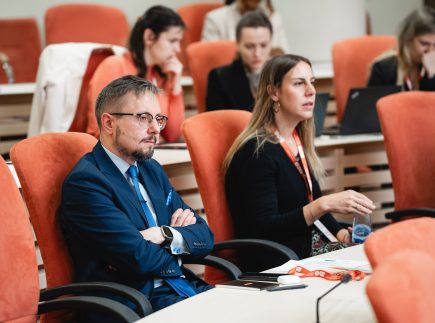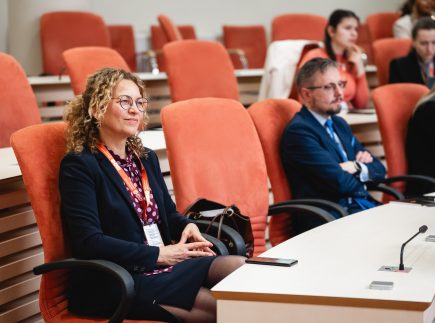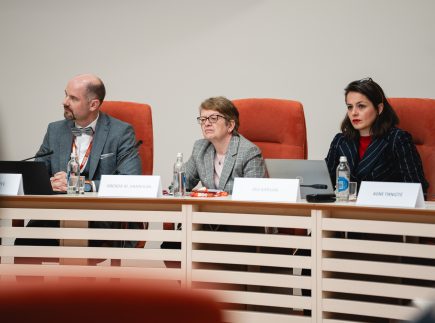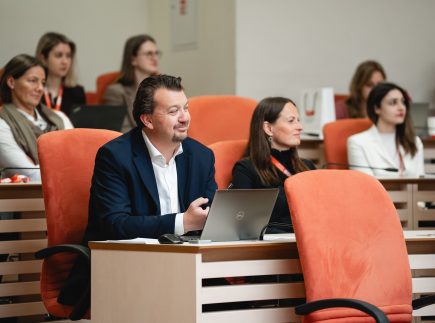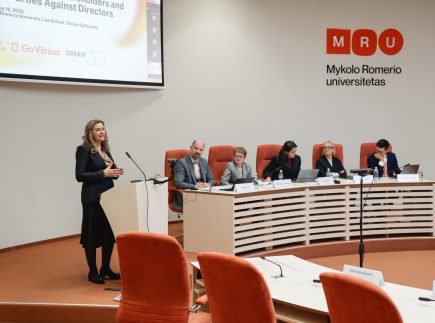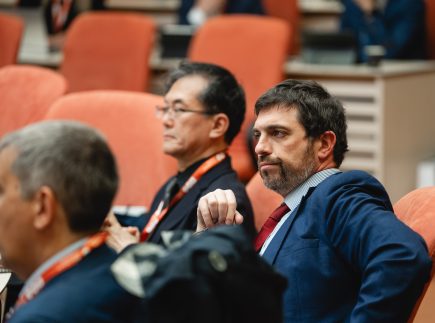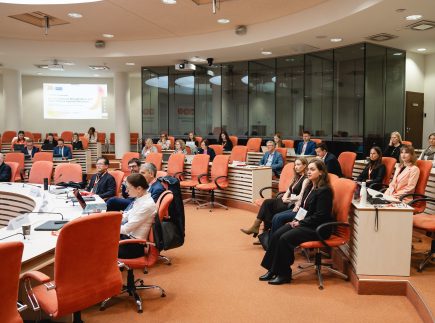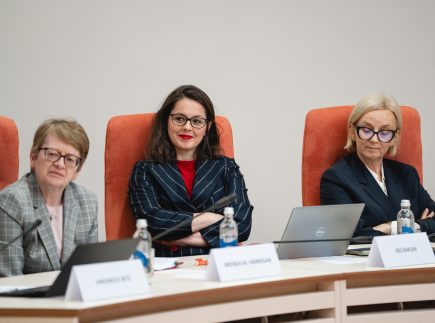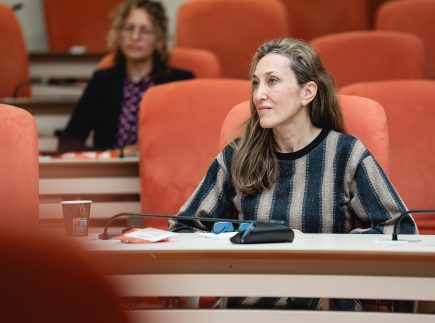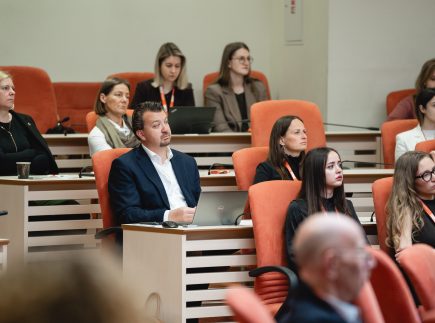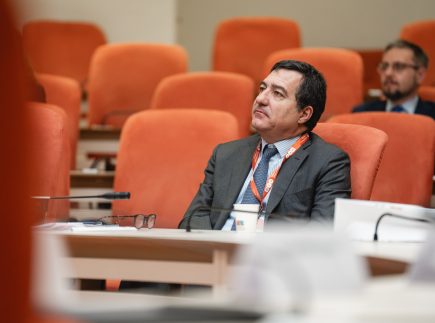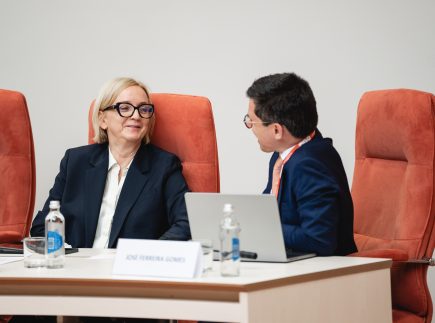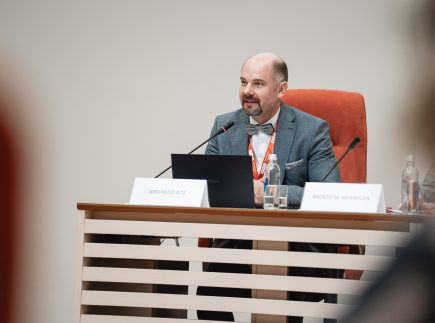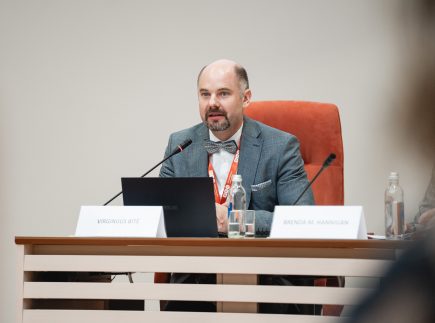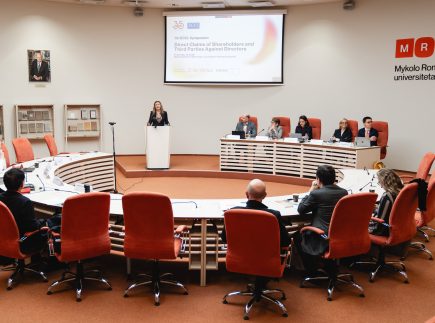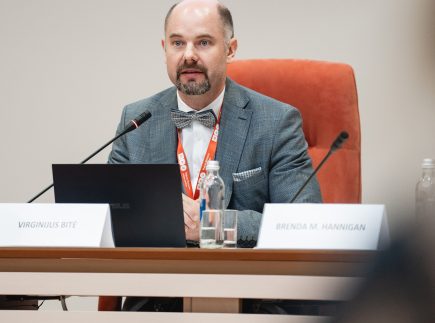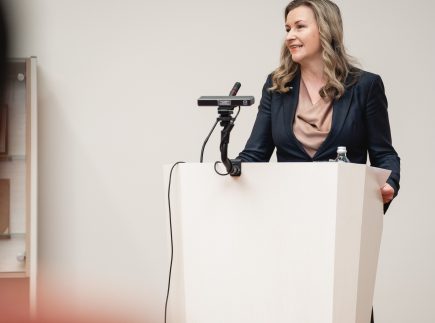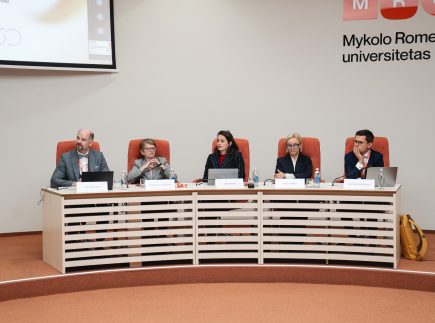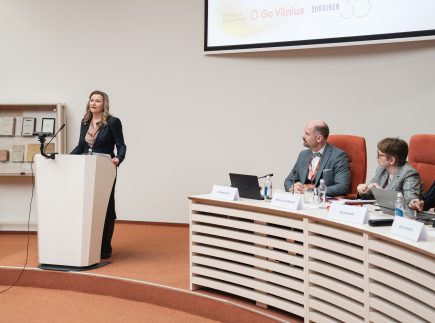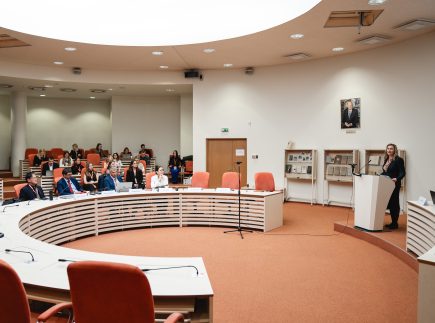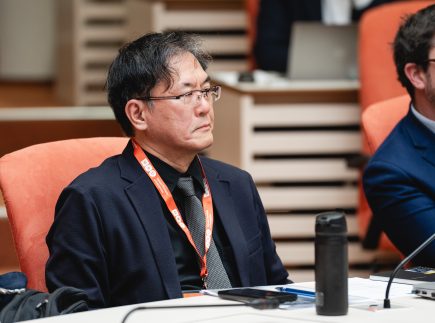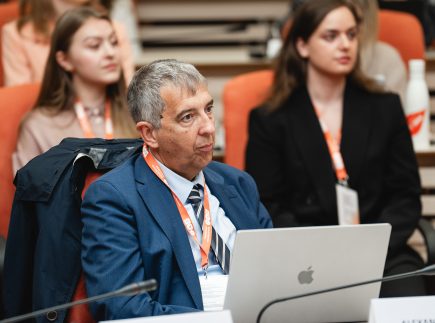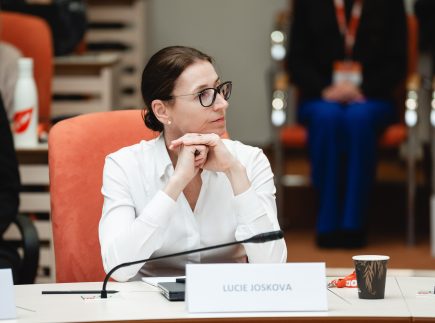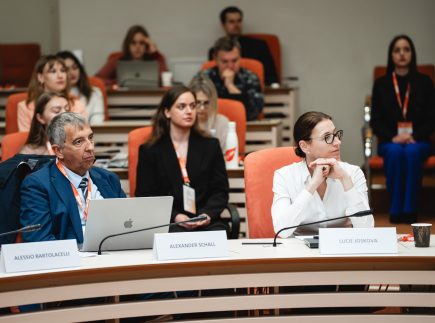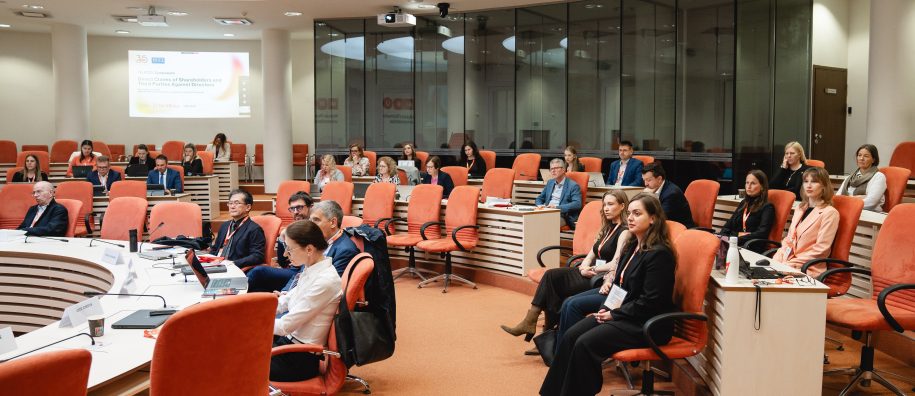
When and under what circumstances can company directors be held directly liable? This question is among the most complex in contemporary corporate law. Different jurisdictions are shaping divergent court practices, revealing varying legal perspectives on the boundaries of directors' liability, potential abuses, and the consequences of legal loopholes.
On May 16, Mykolas Romeris University hosted the 7th European Company Case Law (ECCL) Symposium, which brought together distinguished scholars and practitioners in corporate law to delve into critical legal questions surrounding direct claims by shareholders and third parties against company directors across different jurisdictions.
The event gathered experts from the United Kingdom, France, Germany, Japan, Italy, the Czech Republic, and other countries, who examined both theoretical and practical aspects of direct claims from a comparative perspective. The symposium not only highlighted diverse national legal approaches but also raised questions about balancing responsibility, investor protection, and business environment stability.
In the United Kingdom, directors are generally shielded by the principles of legal personality and limited liability. However, as Brenda M. Hannigan (University of Southampton) emphasized, tort law allows directors to be held liable in cases involving fraud, bad faith breaches of contract, or knowing accessory liability.
Discussing Portuguese law, José Ferreira Gomes (University of Lisbon) explained that the traditional doctrine (including that of England and Germany), which prohibits compensation for so-called "reflective loss", fails to adequately protect minority shareholders. He proposed that they should be allowed to file claims under general civil liability rules.
In Lithuania, both shareholders and creditors may bring direct claims against company directors for unlawful actions, provided these actions were specifically directed at the claimant. Virginijus Bitė (Mykolas Romeris University) emphasized that such claims require proof of individual damage, fault, and a causal link, and that the principle of subsidiarity applies. However, some legal questions in this area remain unresolved.
In France, directors may be held personally liable for violations of law, articles of association, or mismanagement. As Iris Barsan (Université Paris-Est Créteil) explained, liability towards third parties requires proof of personal fault, while shareholders may claim compensation only if they suffer direct, personal damage distinct from harm suffered by the company.
Analyzing the Czech context, Lucie Joskova (Charles University) questioned whether allowing third parties to bring derivative or direct claims against directors contributes to corporate sustainability or instead results in adverse effects, such as an increase in litigation. She discussed the advantages and disadvantages of various approaches.
Hans De Wulf (Ghent University, Belgium) focused on directors’ oversight liability towards third parties when the company breaches legal obligations. He noted that oversight duties are expanding globally, but liability to third parties remains limited, especially in tort-based systems, which require pre-established duties or proximity. Even under the CSDDD directive, restrictive jurisdictions may maintain narrow tort law principles, making it unlikely that victims will sue directors if the company remains solvent.
In Japan, directors’ liability to third parties is provided under Article 429(1) of the Companies Act. Hiroyuki Watanabe (Waseda University and University College London) discussed a 1969 Supreme Court decision, which solidified this liability. While shareholders typically must bring derivative claims, in some cases direct actions are allowed—particularly when the value of shares decreases due to issuance to non-shareholders at favorable prices without a special resolution.
In Italy, direct claims by shareholders and third parties raise challenges, especially in benefit corporations, where directors must balance profit-making and social benefit objectives. Alessio Bartolacelli (University of Modena and Reggio Emilia) pointed out that a key theoretical issue is extending the concept of damage beyond purely patrimonial aspects.
Finally, analyzing the Austrian context, Julia Told (University of Innsbruck) addressed the practical aspects of direct claims by shareholders and creditors/third parties against directors, highlighting key obstacles and differences between Austrian and German legal frameworks.
The conference concluded with closing remarks by Professor Alexander Schall (ECCL Editorial Office), who summarized the main points raised during the symposium and emphasized the continued relevance of the topic for future discussions.
“We are delighted to have hosted this prestigious international symposium at MRU. The abundance of audience questions, strong speaker engagement, and passionate debates demonstrated the importance of the chosen topic and the need to keep these conversations going by learning from one another,”
– said Professor Virginijus Bitė, Director of the Institute of Private Law at Mykolas Romeris University, ECCL Editorial Board member, and Chair of the Organizing Committee.
He also extended thanks to the event sponsors – Sorainen Law Firm and Go Vilnius – for their valuable contributions in making the event possible.
